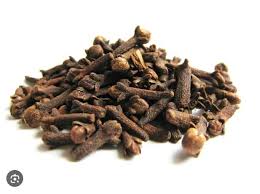
What Are the Side Effects of Taking Cloves?
Safety Considerations for Clove Consumption
Eating Cloves: Consuming small amounts of cloves is generally safe. The Food and Drug Administration (FDA) has classified clove buds and clove oil as Generally Recognized as Safe (GRAS) for use as food additives. However, there is insufficient evidence on the effects of consuming large amounts of cloves, especially for pregnant or nursing individuals. It’s best to stick to the recommended amounts in recipes.
Ingesting Clove Oil: Clove oil contains high concentrations of eugenol, making it unsafe to ingest, particularly for children. Even small amounts can cause severe side effects such as seizures, liver damage, and fluid imbalances. It can also lead to bleeding in individuals with bleeding disorders or those undergoing surgery.
Topical Use: Clove oil or cream from clove flowers is generally safe for skin application. However, using clove oil on the gums can cause irritation and damage.
Drug Interactions: If you are taking medications for blood clotting or blood sugar management, such as for diabetes, be cautious. Eugenol in cloves may interfere with these drugs.
Best Ways to Use Cloves
Clove Oil: The National Association for Holistic Aromatherapy (NAHA) recommends the following:
Spray or Diffuser: Mix 10-15 drops per ounce of water.
Topical Use: Mix 10-15 drops into a carrier oil like coconut oil. Use less if you have sensitive skin.
In Food: Cloves are most effective when included as part of a healthy and balanced diet. Try incorporating a few servings of cloves per week into your meals. Ground cloves can add a warm, distinctive flavor to desserts, curries, or chutneys. Here are some recipe ideas:
Cloves have also been traditionally used to relieve nausea and reduce symptoms of respiratory infections or asthma, though more studies are needed to verify these effects.
Side Effects of Clove Oil
Eugenol Toxicity: High doses of eugenol can damage the liver or trigger allergic reactions in some people. It’s important to take clove oil only in safe doses and keep it out of reach of babies and children.
Liver Toxicity: Clove oil can be toxic when consumed in large amounts (typically 10-30 mL, or roughly 2-6 teaspoons). Symptoms can include agitation, decreased alertness, and coma. Signs of liver injury, such as jaundice, can appear 12 to 24 hours after ingestion. Babies are particularly susceptible to liver damage.
Allergic Reactions: Even when used on the skin or mouth, eugenol can cause allergic reactions. Dentists have used eugenol for over 100 years in various procedures, but it can cause mild to severe allergy symptoms in some people. Signs of an allergic reaction to dental eugenol include redness and soreness where it was applied to the gums, and some people may develop a rash or welts on other parts of their body.
Conclusion
The clove tree produces small flower buds known as cloves, which can be used whole or ground in cooking. While famous for their sweet and fragrant taste, cloves have also been used in traditional medicine. They may offer various health benefits, including regulating blood sugar and inhibiting bacterial growth.
Our experts continually monitor the health and wellness space and update our articles when new information becomes available.
More contents by this author
bristolblogs.com/what-are-the-benefits-of-taking-clove-water/
/bristolblogs.com/the-unique-health-benefits-of-snowbush-plan



